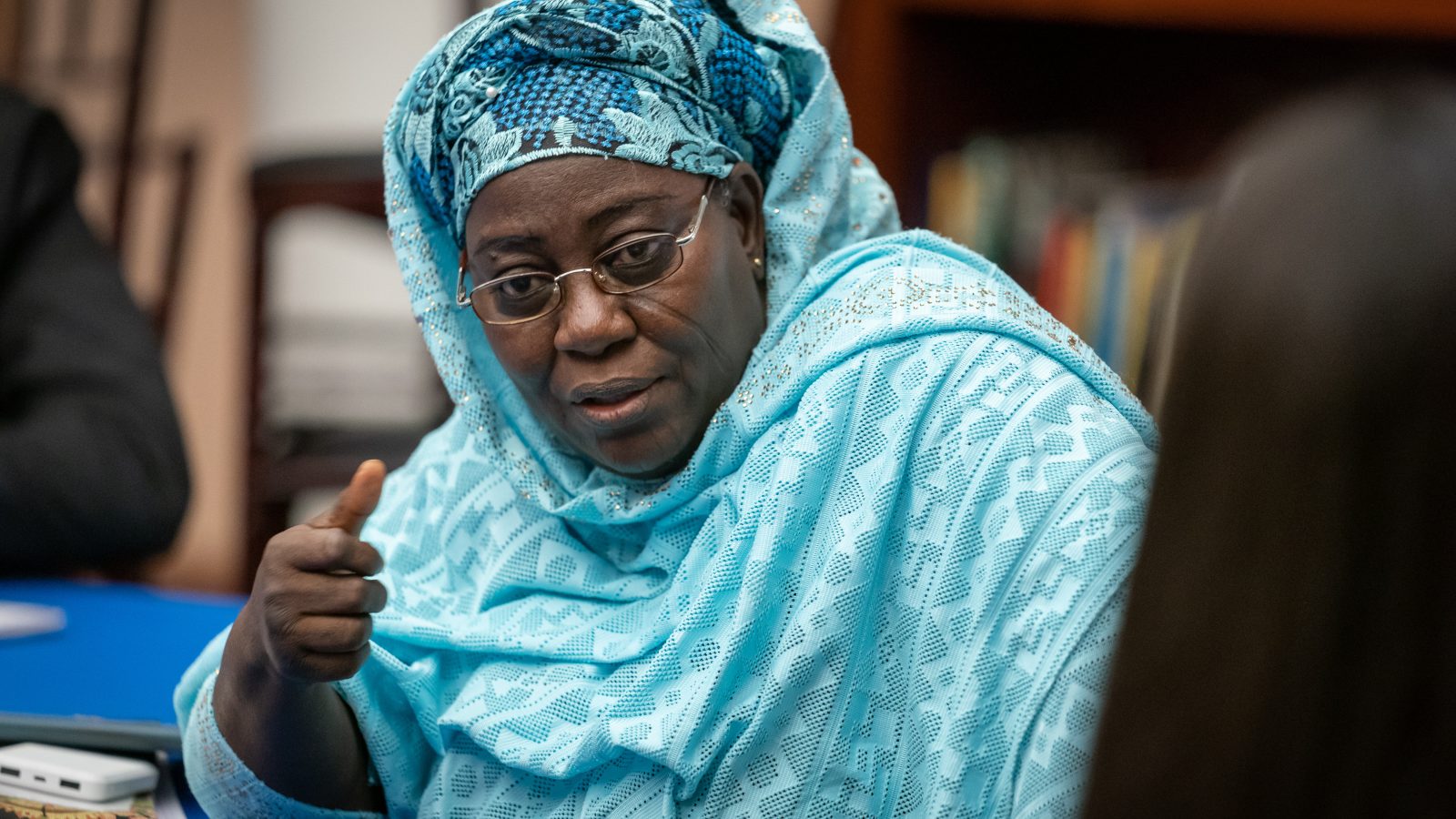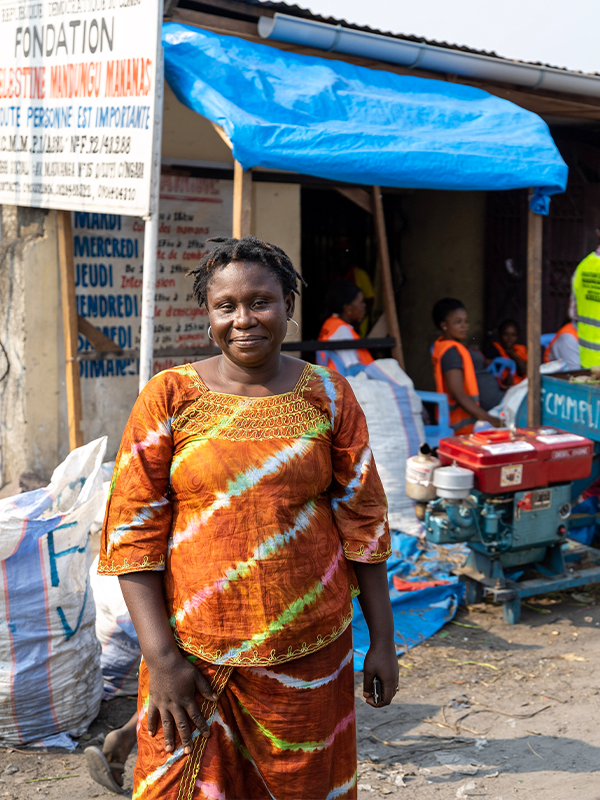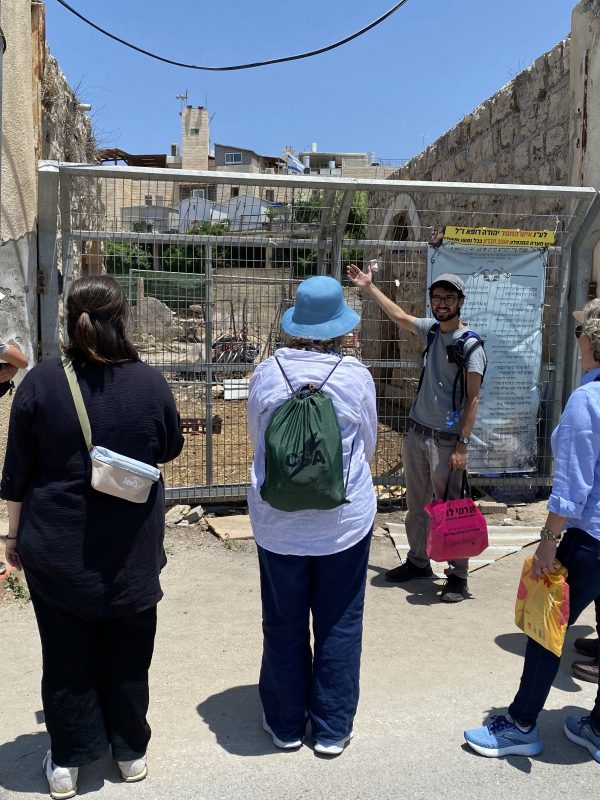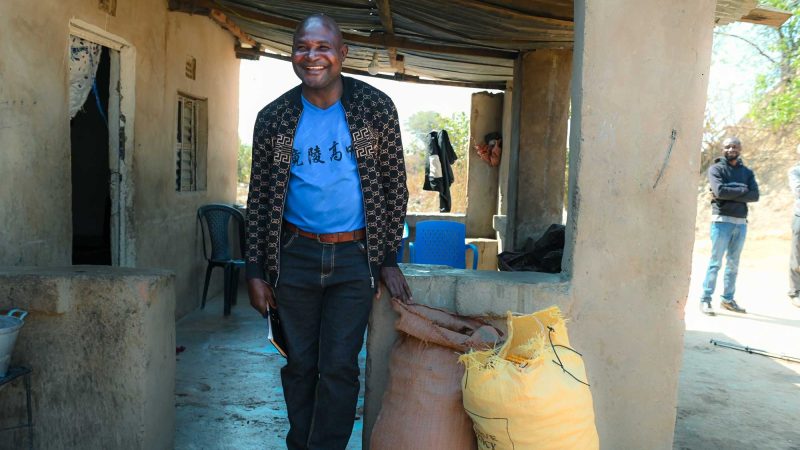
The Carter Center’s Human Rights Program envisions a world where everyone enjoys equal rights, lives in dignity, and can reach their full potential.
Introduction
What are Human Rights?
Fundamental human rights include the right to life and everything that makes that life worth living — the right to food, education, work, health, safety, security, and liberty.
Human rights are universal: All people possess these rights simply because we exist, regardless of who we are, where we live, or what we believe.
International and domestic law protects human rights, but our rights are not always respected. That’s why The Carter Center remains vigilant in defending human rights across the world.
Resources
We need to amplify the voices of peacemakers and human rights defenders, especially women.
Strategic Objectives
The Carter Center’s Human Rights Program has three strategic objectives that guide our work:
- Advance the rights of protected groups
- Promote climate and environmental justice
- Provide responsive expertise to pressing human rights issues
Real Lives, Real Change
Trash to Cash
In the Democratic Republic of the Congo, enterprising women are turning household waste into organic fertilizer, a valuable commodity that keeps chemicals out of the soil, provides fertilizer to farmers, and generates family income.
The Carter Center helped the Celestine Mandungu Mananasi Foundation expand this innovative project, including by purchasing composting machines, an example of how we empower women by providing small grants for short-term projects with potential long-term benefits.
For this project, women collect biodegradable waste and feed it into machinery that breaks the material down into compost, which they can use in their gardens or sell for income.
“The machines are helping us a lot,” said Kukuy Bwiyi Mafi, a widow and mother who makes her living selling compost. “I can take care of my children.”

Priorities & Projects

ACCELERATE Grants
In partnership with the DT Institute, The Carter Center is providing rapid response grants to human rights defenders (HRDs) confronting unprecedented challenges to democracy and fundamental freedoms. The new ACCELERATE funding mechanism will provide HRDs with financial and technical support.
SheRise Women in Climate Action Subawards
Through its Human Rights Program, The Carter Center offers financial and technical support to empower women environmental rights defenders in Zambia, enabling them to engage safely and effectively in activism that strengthens resilience and addresses climate change impacts at the local, regional, and global levels.
Results & Milestones
- Advocated for the establishment of the International Criminal Court and the post of U.N. High Commissioner for Human Rights, both of which helped to reform the U.N. Human Rights Council in 2006.
- 20+ years of hosting Human Rights Defenders Forums, which support the work of courageous activists worldwide. The Carter Center extended this work in 2024 through the ACCELERATE funding mechanism, in partnership with DT Institute, encouraging human rights defense through small grants.
- 200 partnerships with religious and traditional leaders in Ghana and Nigeria to advocate for women’s and girls’ rights, expanding into environmental rights.
- Six provinces in the Democratic Republic of the Congo are now home to Human Rights Houses, which establish protection networks that provide holistic, rapid response to human rights defenders who are threatened as a result of their work. The networks successfully advocated for legislative changes that provide crucial protection for human rights defenders in some provinces.
- Nine human rights impact assessments of extractive industries were conducted in partnership with local organizations in the Democratic Republic of the Congo. The assessments further climate and environmental justice by uncovering pollution, health, and economic disempowerment issues.
More on Human Rights
Global Impact Starts with You
Your support sustains the Carter Center's mission of waging peace, fighting disease, and building hope around the world.



